
7+ Best Security Assessment Tools for Developers
We often hear that a website or software is being compromised or personal information is being stolen, which is sad! Even if you’re using strong technology for your software or website, there is still a chance to lose potential data or get attacked by scammers. This is where solid cyber or security assessment tools can come to your rescue.
In this post, we’re going to discuss how to solve this critical issue without hampering your software code snippets or framework. We would respond to some common security assessment-related tools and issues, as well as share information about some excellent security assessment tools.
By using them, you can check your software, find problems, and figure out how to protect it from fakes. Let’s get started, but before we move forward, we want to explain what is security assessment or why you need it for your website.
Security Assessment Explained – What Is It and Why Do You Need It?
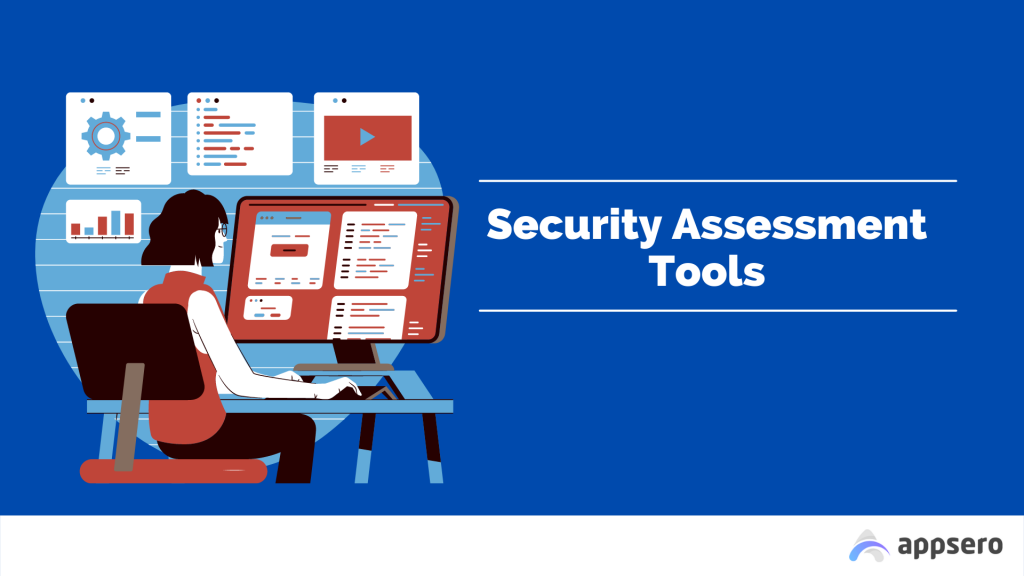
A security assessment is, in short, a process to test applications or software for vulnerabilities, unwanted errors, bugs, etc. And the tools that are being used to perform this test are called security assessment tools. In the test, software needs to pass a test to confirm it’s risk-free and secure to use.
The entire process has four major types of security testing styles:
- Static: A white-hat or white-box testing approach can be applied to Static tools, where the tester has access to the system or software being tested, such as an architecture diagram, and access to the source code
- Dynamic: When using DAST tools, the tester has no prior knowledge of the system, which is also referred to as “black hat” or “black-box” testing.
- Interactive: Interactive security testing tools employ both static and dynamic analysis methodologies in their design.
- Mobile: MAST tools are a combination of static, dynamic, and forensics analysis.
Apart from helping the tester know the software’s issues, these tools are also incredible for solving critical problems like bug fixing, feature re-arranging, or adding new features. After the test, you can rely upon that system. Furthermore, information is secured and ready to use; they will not accept any unknown or unauthorized inputs from any sources.
Before securing your software or performing security testing, you need to keep in mind some important points. Do make sure your security assessment tools are capable of checking all these things below:
- Assets – Things that require protection, such as the software programs and the infrastructure of the computer system
- Threats and vulnerabilities – It’s an action that harms a resource and/or exploits vulnerabilities in one or more resources. If the operating systems & web browsers are not patched, they can be vulnerable. Also, it can weaken authentication methods as it doesn’t have security safeguards like firewalls.
- Risk – It assesses the threats or vulnerabilities that hurt the business. Risk is assessed by determining the extent of a threat or vulnerability and the possibility & effect of exploitation.
- Remediation -It provides actionable guidance for remediating vulnerabilities discovered and verifying that vulnerabilities were successfully fixed
Also read: WordPress Security Best Practices to Look out
Top 7+ Security Assessment Tools You Can Use to Ensure Proper Cyber Security

Now you know how the security testing process works and how the tools help accelerate the entire process. So it’s time to know which testing tool works fast, gives 100% accuracy, and guarantees smooth privacy.
Let’s know the top security assessment tools below!
Note: We have created the security testing tools list based on user ratings, their capabilities, and use cases.
- Zed Attack Proxy (ZAP)- Web App Scanner
- SQLMap- Powerful Security Tester
- Arachni- Web Application Security Scanner
- NMAP- Security Auditing Tool
- Vega- Web Application Vulnerability Scanner
- Wapiti- Web Application Security Assessment Tools
- SonarQube- Code Security for Developers
- NoGotoFail- Security Assessment Tool from Google
01. Zed Attack Proxy (ZAP)- Web App Scanner
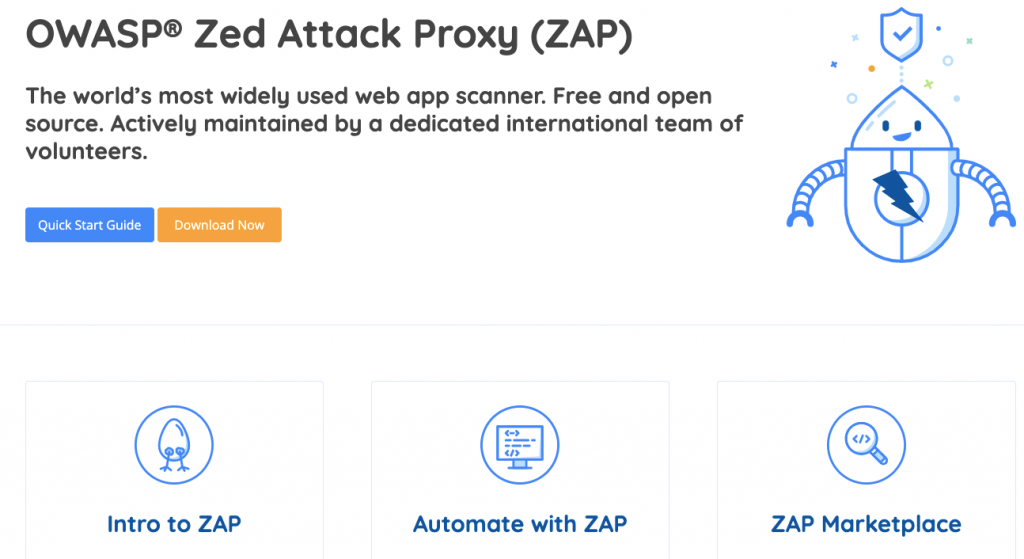
Zed Attack Proxy, or ZAP, in short, was developed by the Open Web Application Security Project. It’s a completely free platform, written in Java, with an open-source testing tool. Almost every platform supports this tool to find vulnerabilities, scanners, and spiders.
It’s mainly used for encountering several security vulnerabilities in a web app or piece of software at the time of the development phase. Apart from these, it also supports command-line access for pro users. ZAP was chosen as one of OWASP’s most successful products because it has so many different services.
Using ZAP, you can find out:
- Injects SQL & XSS injection
- Missing anti-CSRF tokens and security headers
- Cookie not Http Only flag
- Session ID in URL rewrite
Key Highlights:
- Supports Multi-platform
- Uses traditional and powerful AJAX spiders
- Discloses Application errors & Private IP
- Based on Rest-API
02. SQLMap- Powerful Security Tester

SQLMap is fully free to use. It makes it possible to find and fix SQL injection problems in a website’s database and take over servers automatically. It works with Linux, Apple Mac OS X, and Microsoft Windows platforms using the command-line interface. All versions of this tool are free to download.
It’s capable enough of 6 types of SQL injection techniques:
- UNION query
- Error-based
- Boolean-based blind
- Time-based blind
- Stacked queries
- Out-of-band
Key Highlights:
- Automates the procedure to find SQL injection vulnerabilities
- Used for security testing on a website
- Supports different databases, including MySQL, Oracle, and PostgreSQL
03. Arachni- Web Application Security Scanner
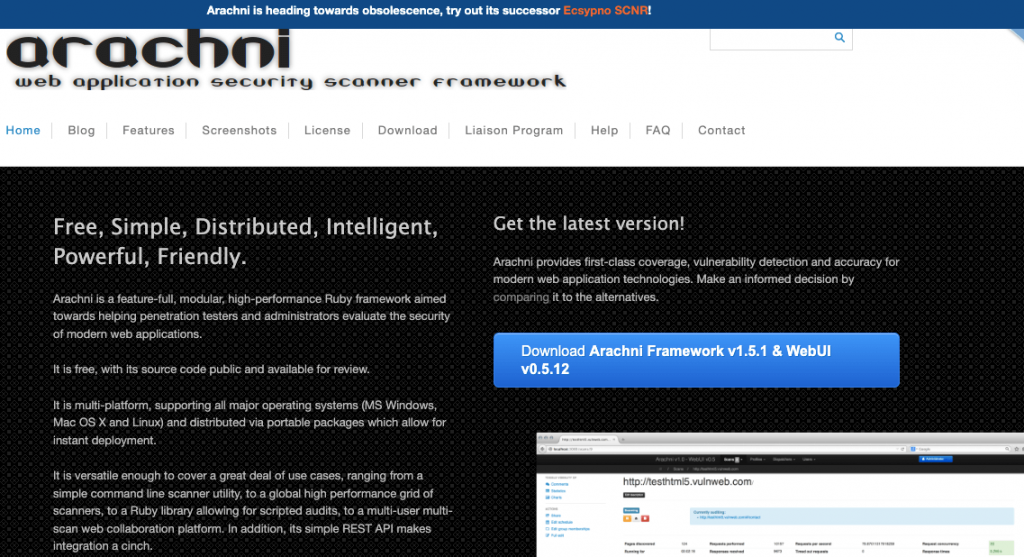
Arachni is trained to identify security flaws in web applications. It’s helpful for both penetration testers and administrators. As an open-source testing tool, it is also great at finding out important facts about software or apps. Apart from that, there are also some notable things that it’s capable of.
Such as:
- Finds the Invalidated redirect
- Local and remote file inclusion
- Supported by Multi-platforms
- SQL & XSS injection
- Modular, high-performance Ruby framework
- Immediately deployable
04. NMAP- Security Auditing Tool
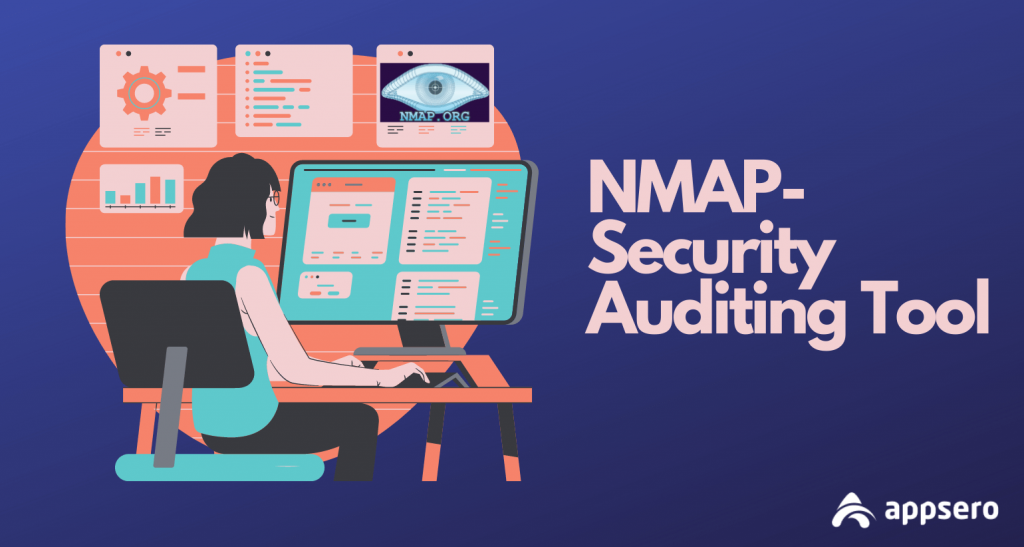
NMAP, or Network Map, is a popular open-source tool that acts as a free security scanner, port scanner, and network investigation tool. It helps to find hosts and services on a network computer and builds a map of the network. This is why it’s called NMAP.
Out of all security assessment tools, Nmap has been around for more than two decades. The key highlights of this tool are:
- Identifies remote devices & firewalls, and routers
- It helps in network inventory, network mapping, and asset management
- Nmap enables to identify which ports are open and check if the ports can be exploited for further attacks
05. Vega- Web Application Vulnerability Scanner

Vega is a free, open-source vulnerability scanning and testing tool. It’s entirely written in Java and has a graphical user interface. Plus, it works with OS X, Linux, and Windows platforms. An automated scanner and website crawler fully power Vega. That’s why it accelerates quick tests.
Key highlights of this security testing tool:
- It’s capable of detecting vulnerabilities
- SQL & Shell injection
- Reflected and stored cross-site scripting, etc.
- With JavaScript, it’s easy to construct new attack modules as the need arises using the APIs
06. Wapiti- Web Application Security Assessment Tools
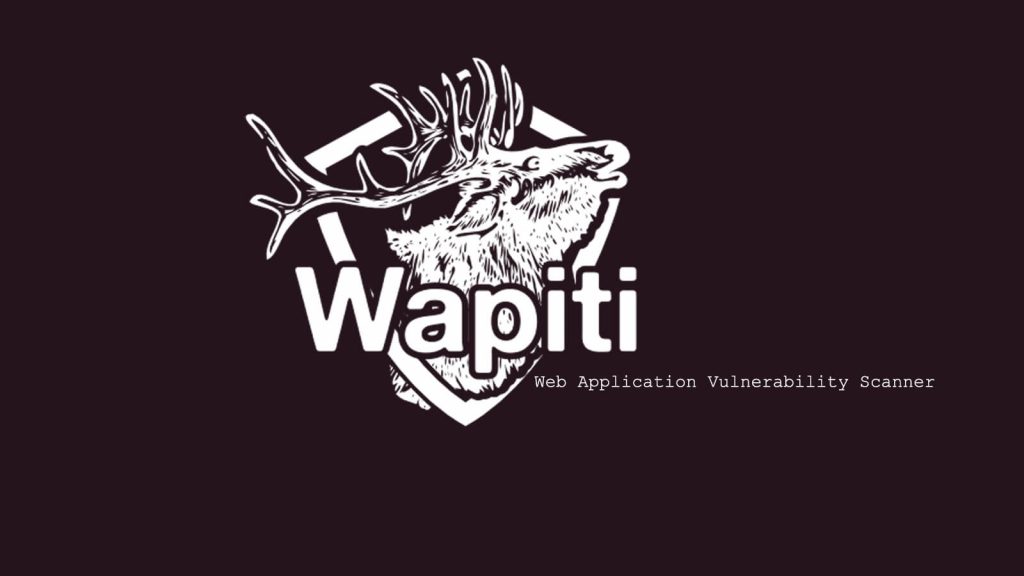
Out of all the web application security assessment tools, Wapiti is also on this list. It’s a free, open-source tool that SourceForge develops. By the way, wapiti is easy to use for advanced users but a little bit tough for newcomers. Following their official documentation page, you can easily get all the instructions.
Wapiti mainly injects payloads if you see the script as vulnerable. The open-source tool for testing security works with both GET and POST HTTP attacks. Apart from checking for vulnerabilities in software, it also performs “black box” testing. Furthermore, it is a command-line application.
Vulnerabilities revealed by Wapiti are:
- SSRF (Server Side Request Forgery)
- XXE, XSS, CRLF & Database injection
- Command Execution detection
- Weak .htaccess configurations that can be bypassed
- File disclosure
- Shellshock or Bash bug
Key highlights:
- Allows authentication via different methods, including Kerberos and NTLM
- Comes with a buster module, allowing brute force directories and files names on the targeted web server
- Supports both GET and POST HTTP methods for attacks
- Works like a fuzzer
07. SonarQube- Code Security for Developers
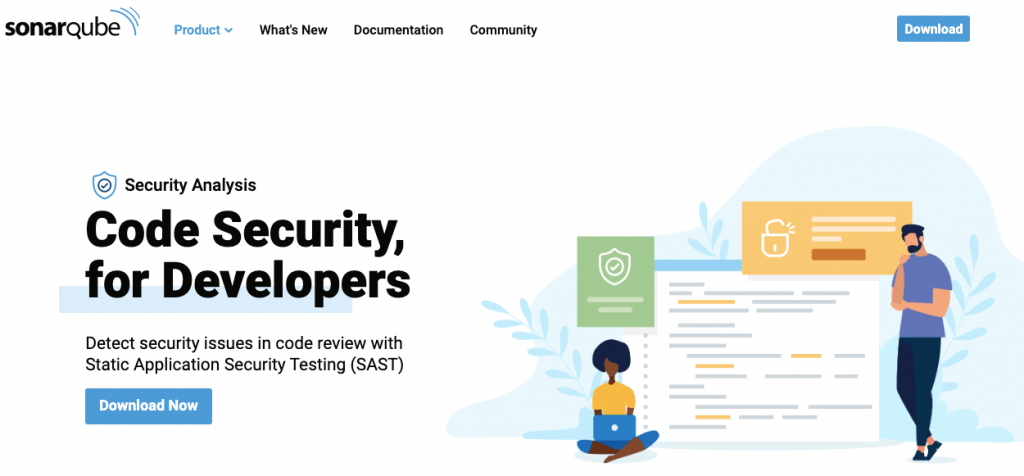
SonarQube is another useful yet popular security assessment tool that you can rely upon. Not only does it help to expose vulnerabilities, but it also helps to measure the source code quality of a web application. A very interesting fact about this tool is that it can analyze over 20 programming languages and is fully written in Java. It gets easily integrated with continuous integration tools like Jenkins
Well, whenever you find any issues with SonarQube, you can mark them with a red or green light. However, the previous version of this solution couldn’t find the high-risk issues. But later on, it upgraded its facilities, and now it’s able to handle high-risk problems.
Let’s see some of the vulnerabilities that SonarQube could expose:
- Memory corruption
- Denial of Service (DoS) attacks
- Cross-site scripting
- Memory corruption
- HTTP response splitting
- SQL injection
- Denial of Service (DoS) attacks
Key highlights:
- DevOps integration
- Visualize the history of a project
- Supports quality tracking of both short-lived & long-lived code branches
- Detects tricky issues
- Set up analysis of pull requests
08. NoGotoFail- Security Assessment Tool from Google

NoGoToFail is a network traffic security testing tool from Google. It’s specially designed for finding network-related issues. It’s a very small program that can also find TLS/SSL vulnerabilities and wrong configurations.
Like other security assessment tools, it’s also capable of exposing some serious issues, such as:
- SSL certificate verification issues
- SSL injection
- MiTM attacks
- TLS injection
Key Features
- It’s easy to use
- Lightweight
- Handy for all users and readily deployable
- Supports setting up as a router, proxy, or VPN server
FAQs on Software Security Assessment Tools
1. What are the types of security assessments?
Answer: There are different types of security testing you can find online. But they maintain some common scenarios.
Such as:
01. Vulnerability assessment
02. Penetration testing
03. Red Team assessment
04. IT Audit
05. IT Risk Assessment
2. What is a vulnerability assessment tool?
Answer: A vulnerability assessment tool scans your application for new and old threats that might compromise it.
Web application scanners, for example, can be used to emulate known attack behaviors. Probes that look for susceptible network services and protocol ports.
3. How do you do a security assessment?
Answer: Here is how you can conduct a security assessment:
01. Map Your Assets
02. Identify Security Threats & Vulnerabilities
03. Determine & Prioritize Risks
04. Analyze & Develop Security Controls
05. Document Results From Risk Assessment Report
06. Create A Remediation Plan To Reduce Risks
07. Implement Recommendations
08. Evaluate Effectiveness & Repeat
4. What should I look for in a security assessment?
Answer: You need to keep in mind some important things before using any security assessment tools. Here are they:
01. Sensitive Data Inventory
02. Data Classification
03. Data Risk Analysis
04. Data Encryption Review
05. Access Authorization Procedures Access Controls
5. What are the 4 main types of vulnerability?
Answer: The main four types of vulnerabilities are:
01. Human-social
02. Economic
03. Environmental
04. Physical
5. Why is security assessment important?
Answer: Security evaluations help your IT staff discover areas of weakness and potential for improvement in security protection. Your IT staff can make better judgments regarding future security expenditures if they know where current vulnerabilities are and the most critical ones.
Summary of Security Testing Tool
The post has come to an end. We have closely discussed the top 8 open-source security assessment testing tools for web applications or software. This post aims to help software developers or QA testers select an appropriate tool for the entire assessment based on the severity of the issue.
So choosing the right tool should be the first step in figuring out how secure your application is. And these tools tell QA testers where to focus and help find potential security holes.
Have you performed pen testing before? If yes, please share your experiences. What is security, and which is your favorite application security testing tool? If we have missed any important tools in this list, please let us know in the comments below.
Additional Resources for Software Developers:
If you’re looking to grow your communication skills as a software engineer, you can directly take help from the article here that explains how to grow your engineering communication skills for software company jobs
You might be in a dilemma when choosing between data science and software engineering. Here is a guide for you to learn the basic differences between data science and software engineering
If you find any software assessment tool for your software, you might need to prepare a report based on the issues, bug fixes, etc. So here is a guide for you to learn more about software testing reporting.
For more information, timely updates, and trendy articles on interesting topics like this one, you can subscribe to the Appsero Newsletters below ⤵️
Subscribe To Our Newsletter
Don’t miss any updates of our new templates and extensions
and all the astonishing offers we bring for you.
